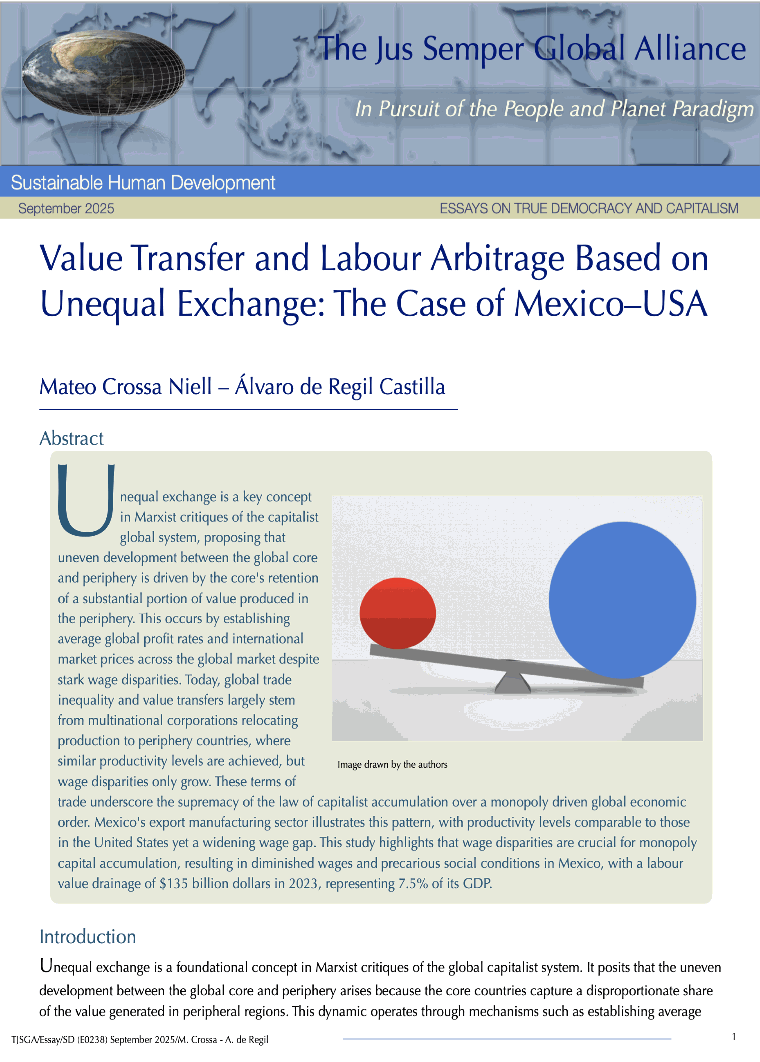Value Transfer and Labour Arbitrage Based on Unequal Exchange: The Case of Mexico – USA
Mateo Crossa Niell – Álvaro de Regil Castilla
Unequal exchange is a key concept in Marxist critiques of the capitalist global system, proposing that uneven development between the global core and periphery is driven by the core's retention of a substantial portion of value produced in the periphery. This occurs by establishing average global profit rates and international market prices across the global market despite stark wage disparities. Today, global trade inequality and value transfers largely stem from multinational corporations relocating production to periphery countries, where similar productivity levels are achieved, butwage disparities only grow. These terms of trade underscore the supremacy of the law of capitalist accumulation over a monopoly driven global economic order. Mexico's export manufacturing sector illustrates this pattern, with productivity levels comparable to those in the United States yet a widening wage gap. This study highlights that wage disparities are crucial for monopoly capital accumulation, resulting in diminished wages and precarious social conditions in Mexico, with a labour value drainage of $135 billion dollars in 2023, representing 7.5% of its GDP.
For a full read of this essay, click here or on the picture to download the pdf file. |






